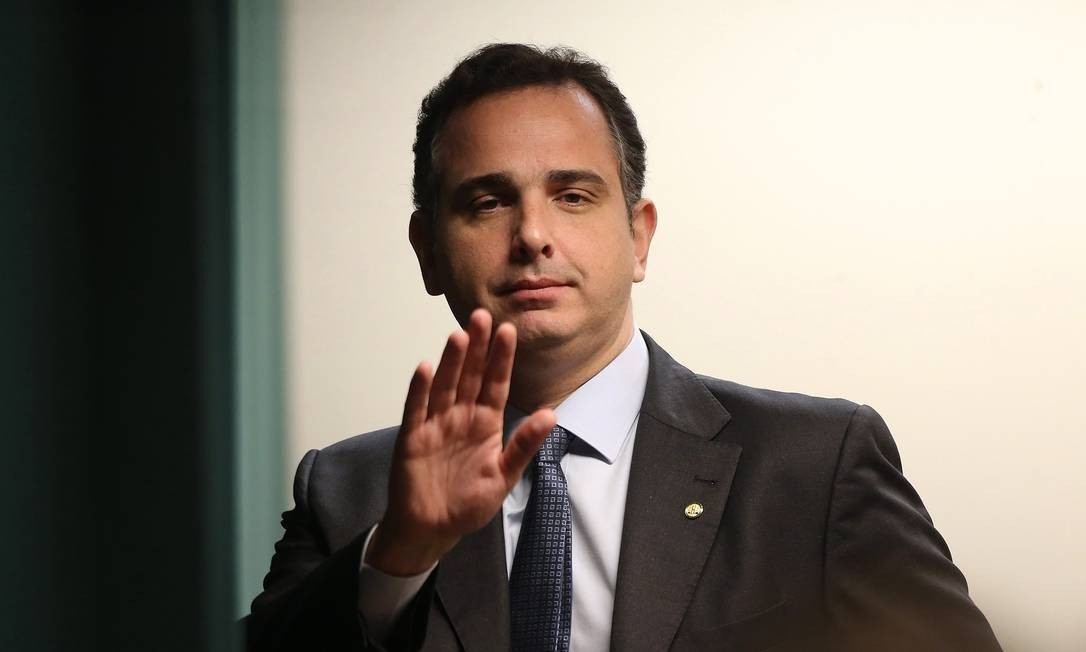RIO DE JANEIRO, BRAZIL – Senate President Rodrigo Pacheco (PSD-MG) is trying to deblock the tax reform (PEC 110 of 2019) that unifies taxes at the federal and state levels. He told Poder360 newspaper that he had agreed with the president of the Senate’s CCJ (Constitutional and Judicial Commission), Davi Alcolumbre (Union-AP), that the project would come up for a vote next week.
The text still needs to be reviewed by the College before it can be considered in the plenary of the upper house. The rapporteur is Senator Roberto Rocha (PTB-MA). Pacheco expresses optimism that the vote will take place from June 30 to July 3, which senators need for personal analysis.
Pacheco acknowledges, however, that finding consensus is difficult. Leaders of the largest caucuses in the House of Representatives are skeptical of such a quick vote. They argue that it is not time at the end of the government to move forward with an amendment of this magnitude, writes Poder360.

The leader of MDB, the most significant bench in the Senate, Eduardo Braga (AM), told Poder360 that it is not “feasible” to vote in such a short time. The presidents of the PSD, Nelsinho Trad (MS), and the PSDB, Izalci Lucas (DF), also expressed skepticism about the vote, which is expected to take place as early as next week.
“I don’t think it will be possible to vote. I think the end of the government is not suitable for a reform of this magnitude,” Braga said.
Already the Worker’s PT leader, the largest opposition bench in the upper house, Paulo Rocha (PA), agrees that it is not the right time to vote at the end of Jair Bolsonaro’s term. For him, however, the project is “ripe” to be voted in the CCJ. Rocha says the PT will not block the vote, even if he criticizes the timing.
The Senate president has defended moving forward with tax reform. In March, Pacheco said the Chamber of Deputies was “committed” to approving the changes. However, the PEC (proposed constitutional amendment) has been placed on the CCJ agenda at least four times, and its consideration has been postponed.
The Ministry of Economy has already signaled its support for the PEC but does not insist on approval of the text.
The proposal clears the way for creating the CBS (Contribution on Transactions with Goods and Services ), a replacement tax for the PIS / COFINS (Brazilian VAT) levied by the federal government. The team of Paulo Guedes has sent a version to the House of Representatives to create the CBS through a bill, but it is stuck there.
Another reform that the ministry is defending is that of the income tax. (There is an idea for a leaner package that would tax profits and dividends at 10% – a lower rate than the 15% proposed in the current bill. However, nothing has been formalized yet).
Who decides whether PEC 110 will be considered is the commission’s chairman. It is unlikely that the measure will be analyzed without a well-negotiated agreement with the senators. Poder360 has found that Alcolumbre is working toward a deal with Pacheco but that a vote next week is only a “possibility” at this point in the championship.
As a PEC, you need at least 49 of 81 votes on the Senate floor to pass. If the proposal passes the upper house, it still needs to go to the House of Representatives.
President Arthur Lira (PP-AL) noted that the special committee had been established to consider another tax reform proposal. This is a sign that the measure can move forward among deputies.
R$1.1 TRILLION AT STAKE
The PEC changes the rule for calculating five taxes. Together, they account for 13.2% of Brazil’s GDP (gross domestic product).
The ICMS, a tax levied by states on the movement of goods and services, is the most critical tax in this group. It is equivalent to 7.6% of GDP (R$660 billion).
THE PROJECT CREATES 3 TAXES
The PEC paves the way for:
- 2 federal taxes: the CBS (merger of PIS and Cofins) and the Selective Tax (new IPI);
- 1 subnational tax: the IBS (merger of ICMS, the state incidence, and ISS, the municipal incidence).
The PEC prevents the increase in the overall tax burden. Tax rates are to be set by law.
The group would like to set a cap in the Constitution on the rate charged. The rapporteur’s team considers this unfeasible but remains open to finding other points of convergence.
For the rapporteur, the proposal will reduce legal uncertainty. An estimate by Insper indicates that Brazilian tax disputes reached R$5.4 trillion in 1019.
With information from Poder360

